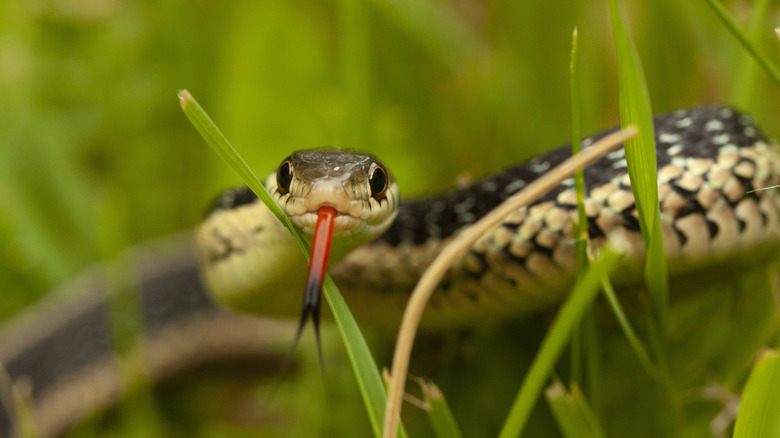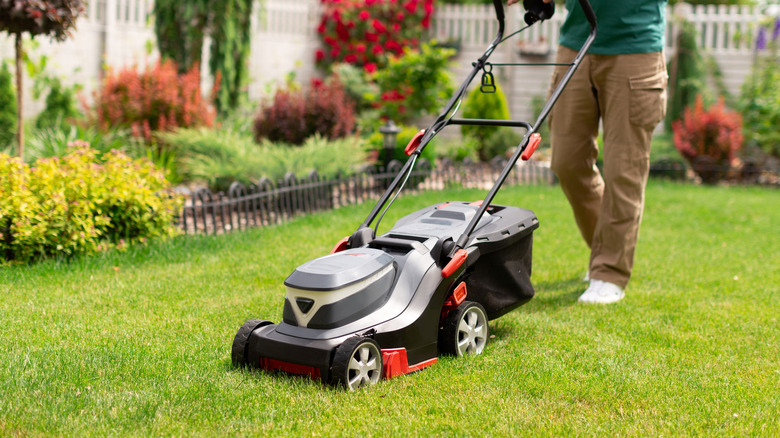Prevent Snakes From Hiding Out In Your Yard With One Essential Task
Snakes can be a big help for getting rid of rodents in your yard, but that doesn't necessarily mean you want the slithering reptiles around. There are a variety of ways to avoid attracting snakes to your yard, and many of them are surprisingly easy. Staying on top of mowing your lawn is one of the simplest ways to minimize snakes in your yard. This means getting out the lawn mower more often.
Hawks, coyotes, and other large animals hunt snakes, which is why the slithering reptiles prefer longer grass where they can hide from these potential predators. Keeping your grass short should discourage snakes from visiting your yard. Mow your lawn to the lower end of the recommended range of grass heights, around 1 ½ inches, and that means you'll need to mow more frequently.
That turf height may not be the best length to cut your grass from the point of view of lawn health, as longer grass tends to be more drought tolerant. However, if you've been having trouble with snakes in your lawn, this trade-off may be worth it for you. To keep your grass that short, you'll likely need to mow at least once a week when your grass type is in an active growth stage.
Consider lawn health while discouraging snakes
The best length to mow your grass for lawn health is generally between 1 ½ and 3 inches, depending on the type of turf grass. Staying on the shorter side of this recommendation is best if you're trying to discourage snake visits. But to keep your grass healthy, it's important not to remove more than a third of your grass's height at a time. So, if you want to cut your grass to 1 ½ inches, you should mow it when it reaches about 2 ¼ inches. This will likely require you to mow quite often — at least once a week and maybe even more if you're aiming to keep your grass height closer to 1 ½ inches.
Of course, keeping your grass at a short length isn't the only thing you should do if you're having trouble with snakes in your yard. You can also make sure you don't have any pet food or bird seed mess that could be attracting snake snacks like mice or rats to the yard. Overwatered lawns can also attract snake food in the form of slugs and frogs. Lawns don't generally require more than about an inch of water per week. Overwatering isn't just wasteful; it could also attract snakes into your yard. But if you're following all of the advice and are still finding too many slithering visitors, it may be time to find a professional in your area who can safely relocate them.

